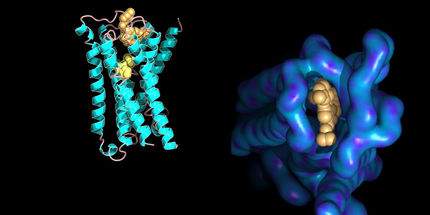Lilly Expands Drug Discovery Efforts in Singapore
Broader Research Focus Will Leverage Local and Regional Talent
Advertisement
Eli Lilly and Company announced a USD $150 million expansion, over the next five years, of its state-of-the-art drug discovery research activities at the Lilly Centre for systems biology (LSB). The project, a partnership with the Singapore Economic Development Board (EDB), will take advantage of local biomedical expertise and, potentially, fuel Translational Medicine growth in Singapore.
Lilly's commitment to Singapore began in 1996 with the establishment of the Lilly-NUS Centre for Clinical Pharmacology, a joint venture with the National University of Singapore and the EDB. This phase 1 clinical pharmacology unit is now a fully owned Lilly facility, and provides a substantial portion of the clinical pharmacology capacity for Lilly. The site has performed more than 100 clinical trials including complex metabolic investigations and trials that involve pharmacogenomic stratification of subjects. Experts at the site provide oversight of Lilly sponsored phase 1 trials in Asia.
Lilly's systems biology facility began operations in November 2002 and has shown leadership in the use of cutting-edge pharmaceutical research technologies to discover new medicines more productively. To date the Centre has discovered multiple biomarkers which are supporting Lilly clinical trials worldwide. Several information technology tools and platforms have also been developed at the Singapore facility, which are now used throughout the company to aid drug discovery. The Centre has established important and fruitful collaborations with the Genomics Institute of Singapore, the Broad Institute in Boston, Massachusetts, and the Translational Genomics (TGEN) Research Institute in Phoenix, Arizona.
The growing facility will be renamed the "Lilly-Singapore Centre for Drug Discovery" and build on Lilly's existing capabilities in biomarker discovery and development, primarily in cancer research. New drug discovery capabilities will be developed in cancer and metabolism. Other areas of focus will include: epigenetic biology, adult stem cell biology, disease state modeling, and computational sciences.
Most read news
Other news from the department business & finance

Get the life science industry in your inbox
By submitting this form you agree that LUMITOS AG will send you the newsletter(s) selected above by email. Your data will not be passed on to third parties. Your data will be stored and processed in accordance with our data protection regulations. LUMITOS may contact you by email for the purpose of advertising or market and opinion surveys. You can revoke your consent at any time without giving reasons to LUMITOS AG, Ernst-Augustin-Str. 2, 12489 Berlin, Germany or by e-mail at revoke@lumitos.com with effect for the future. In addition, each email contains a link to unsubscribe from the corresponding newsletter.



















































